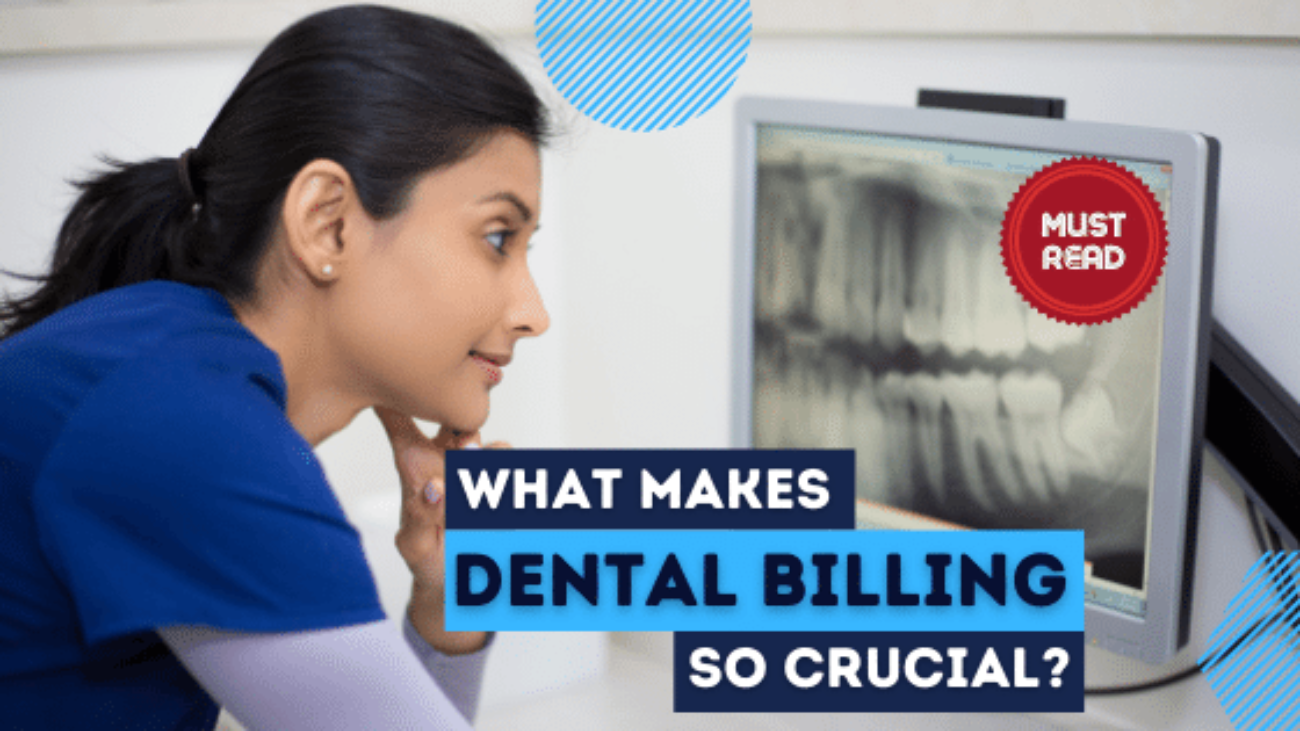How does patient eligibility verification determine the results after claim submission? Do dental billing plans accept all types of forms? The answer for both the questions is YES! When it comes to dental claim processing, either healthcare professionals appeal everything or nothing. Patient’s information being very important is supposed to be submitted without any mistakes and missing elements. Even a lot more than asked is also too risky.
Too much of information or insufficient information affects examiner’s decision in regards to claim approval or claim denials. Firstly, the main focusing point is to minimize the revenue loss. When dental professionals appeal everything , it’s definitely waste of time! Appeal process is very critical that information required for appeal process must be according to payer’s protocol.
Frequent denial reasons in Dental Billing:
- Frequency limitations
- Plan Maximums
- Bundled services
- Insufficient medical necessities
- The four on the list cannot be appealed without any expectation of reversal. The first one, frequency limitations is something that prevents payments when the procedure slips out of the time frame indicated.
- When the patient needs to have X-rays or dentures or any other procedures in shorter period of time of which insurance companies have contracted, it means the insurance companies denies to pay for the claim whatever is the reason.
- When spoken about plan maximums, they are set to limit the insurance companies payouts either if it’s for family or single patient within specific time period. Mostly one year in length.
- Once the patient meets the annual maximum, insurance companies will not accept to pay beyond.
- Bundled services are more often incorporated into terms for over use of codes by dental practice to increase reimbursement rates. For example in dental billing, performing multiple quads in single appointment is to receive more in minimum time.
- It’s not encouraged by insurance companies because of overutilization of codes which reveals improper billing for non-periodontal cases. If the plan contains bundled services, insurance companies will deny to pay for it.
- For the dental billing denials because of insufficient medical necessities, it can be fought all the way in conference call or one to one with insurance companies. Actually insurance companies usually tend to deny many normal procedure that covers them.
- Some dental professionals fail to appeal the process. They confront revenue loss as they don’t accept to pay without any appeals.
The use of procedure codes in Dental billing claim form:
- When HIPAA act was passed in 1996, the first regulations to adopt under HIPAA guidelines was Transactions and code set rules.
- This regulation paved a way to establish Standardized Procedure Codes for multiple healthcare specialties. For dental billing, the procedure codes stand as Current Dental Terminology (CDT).
Five levels of coding compliance include:
- Legal-proper reporting under the current CDT reference material ( federal and state law).
- Benefit plan contract provisions between dentist and payer.
- ADA Ethics and Code of Professional Conduct.
- Moral standards of fairness.
- Provide clarity and description to allow for accurate reporting in an electronic health record.
How important is NPI number for dental billing:
- NPI ( National Provider Identification) is very essential for healthcare professionals and each must have the 10 digit unique identification number.
- Even if the healthcare professionals does not electronically transmit the patient’s information, NPI number of the dental professional who performed the procedure is very essential.
- NPI number is constant and doesn’t replace the State license, DEA, EIN and TIN.
- NIP number is very much required for the below:
- Electronic claim submission
- Clearing houses to process the claims
- To view eligibility and benefits as well as to check claim status
- To receive electronic fund transfer payments from a plan.
Types of NPI numbers used for Dental billing:
- There are two types of NPI which include:
- Type 1: For the individual dental provider related to State license number.
- Type 2: For Practice groups, incorporated dental practices or corporate using EIN or TIN.
- Solo Practitioner :
Requires type 1 for the performing dentist and dental billing if claims are transmitted using dentist personal information such as name and TIN number.
- Individual Dentist at one location:
Requires type 1 for the performing dentist and type 2 for dental billing if the claims are transmitted used practice name and practice tax ID.
- Multiple Dentists at one location:
Requires type 1 for the performing dentist and type 2 for dental billing if the claims are transmitted using practice’s name and practice’s tax ID.
Radiographic attachments for Dental billing:
- Different guidelines is a common factor for dental billing procedures. Radiographs should not be submitted when they are not required or necessary to process the claims.
- Unless and until the plan demands for the radiographs, it should be avoided to attach along with the claim as it will be considered as duplicate.
- Check the dental plans or call the insurance companies to clarify if radiographs are required to be attached along with the claim.
- Radiographs images must be of better diagnostic quality.
- Avoid sending original radiographs as most of the plans won’t return the X-rays.
- Ensure better labeling and naming on radiographs before submission.
- Affix radiographs firmly in the claim forms.
- Try to mostly attach the claim forms electronically.
Hope you got the information on dental billing. For more suggestions, please comment below, we will definitely consider them if relevant. For more queries and updates on healthcare, please subscribe to our blog.




